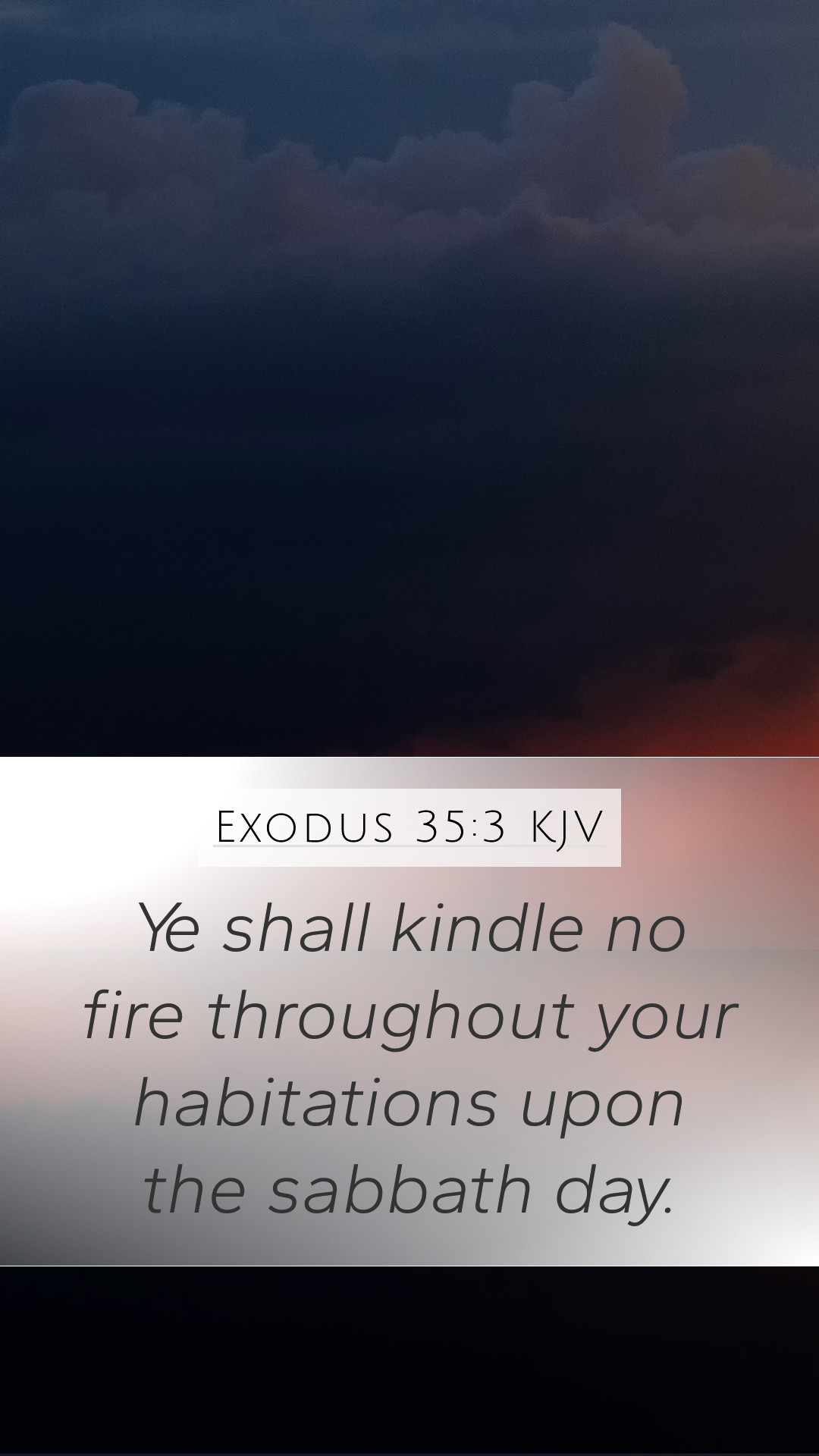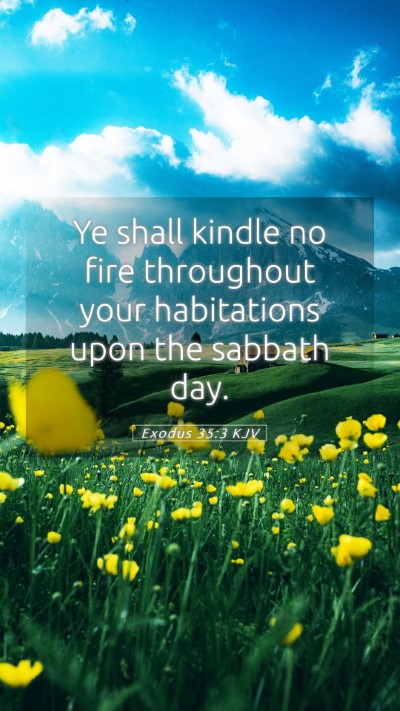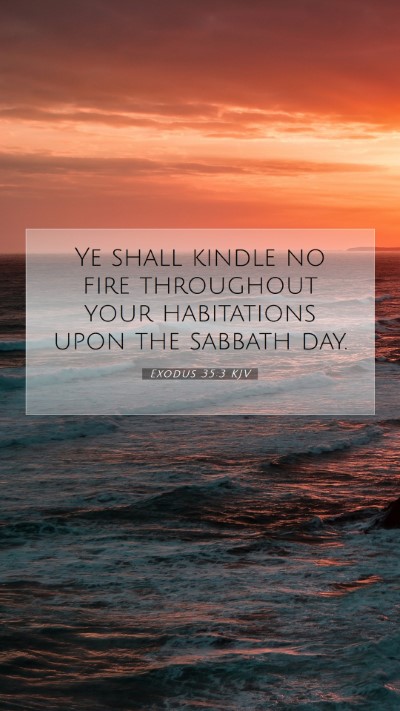Understanding Exodus 35:3
Exodus 35:3 states, "Ye shall kindled no fire throughout your habitations upon the sabbath day." This verse comes from a significant portion of the Hebrew Bible where God outlines the laws and regulations for the Israelites, particularly concerning the Sabbath.
Meaning of Exodus 35:3
The command against kindling fire on the Sabbath is not merely a prohibition against starting fires but is emblematic of a broader principle of rest and sanctification of the Sabbath. It underscores the emphasis placed on ceasing from labor and engaging in spiritual reflection and fellowship with God.
Insights from Public Domain Commentaries
-
Matthew Henry:
Matthew Henry highlights the importance of the Sabbath as a day of rest, stressing that the prohibition against kindling fire is a reminder of the sacredness of this day. He emphasizes that work should not overshadow worship and spiritual restoration, suggesting that the cessation of common work allows the believer to focus on God and their relationship with Him.
-
Albert Barnes:
Albert Barnes interprets the passage by discussing the cultural context of fire in biblical times, where it was essential for daily life. He illustrates how the command centers on the idea of refraining from secular activities to honor the Sabbath as a holy day. Barnes posits that this verse serves as a boundary to remind the Israelites that even necessary tasks must be deferred in recognition of the spiritual significance of the Sabbath.
-
Adam Clarke:
Adam Clarke provides an analytical view, elaborating on the customs followed by the Israelites during the Sabbath. He posits that the commandment reinforces the need for obedience to God's laws, promoting a day dedicated solely to divine relationship and reflection. Clarke brings attention to what constitutes work and how it should be carefully considered in the context of keeping the Sabbath holy.
Historical and Cultural Context
Understanding the historical and cultural background is crucial for comprehending Exodus 35:3. The Israelites were emerging from a history of slavery, and the Sabbath was instituted as a gift to them, a time to rest, reflect, and rejuvenate spiritually. The cultural norms of ancient Israel positioned the Sabbath as a family-oriented day, allowing communities to gather in worship and reinforce collective identity rooted in faith.
Scriptural Analysis and Commentary
Exodus 35:3 forms part of a larger narrative that includes various laws governing the lives of the Israelites. This verse serves as a practical application of the command to observe the Sabbath. The verse emphasizes that work and devotion cannot coexist excessively; one must yield to the other, especially on holy days. Through this lens, it invites readers to ponder the role of work versus worship in their own lives.
Application of Exodus 35:3 in Modern Life
In today's context, the principle behind Exodus 35:3 can be interpreted as an encouragement to intentionally set aside time for rest and spiritual engagement. It prompts believers to evaluate their lifestyles, ensuring that the busyness of life does not hinder their relationship with God. It serves as a call for individuals to create a routine that allows for regular spiritual rejuvenation, reflecting on how to balance secular responsibilities with divine devotion.
Cross References
- Exodus 20:8-11: Discusses the Sabbath commandment in greater detail.
- Leviticus 23:3: Highlights the sacredness of the Sabbath as a day of rest.
- Deuteronomy 5:12-15: Reiterates the importance of remembering the Sabbath.
Conclusion
The understanding of Exodus 35:3 as presented through various biblical commentaries reveals rich meanings that extend beyond the literal prohibition of kindling fire. It calls believers to honor the Sabbath, recognize the need for spiritual rest, and establish a rhythm of life that prioritizes the divine amidst daily tasks. This verse serves as powerful guidance in amidst the complexities of modern life.


